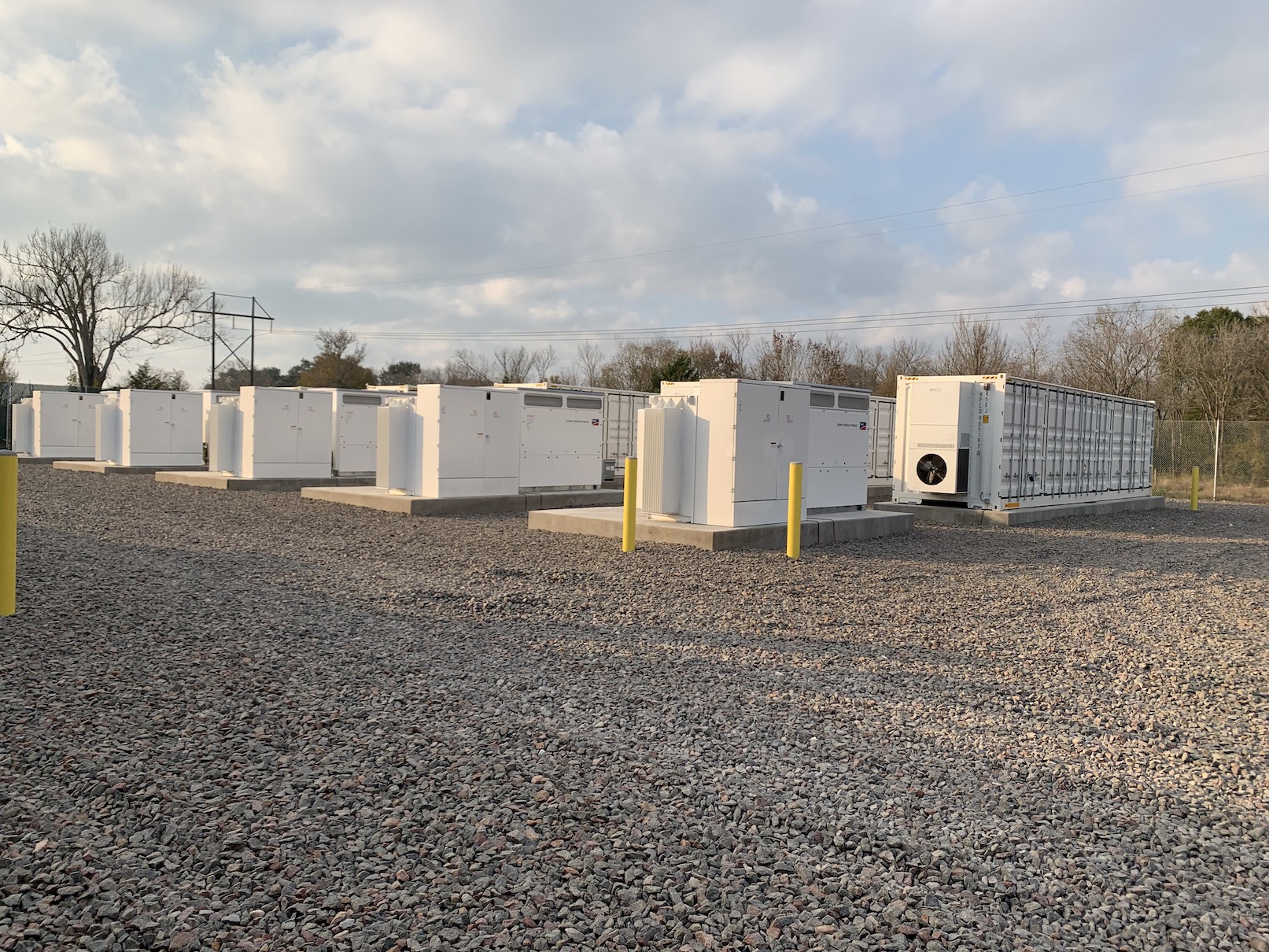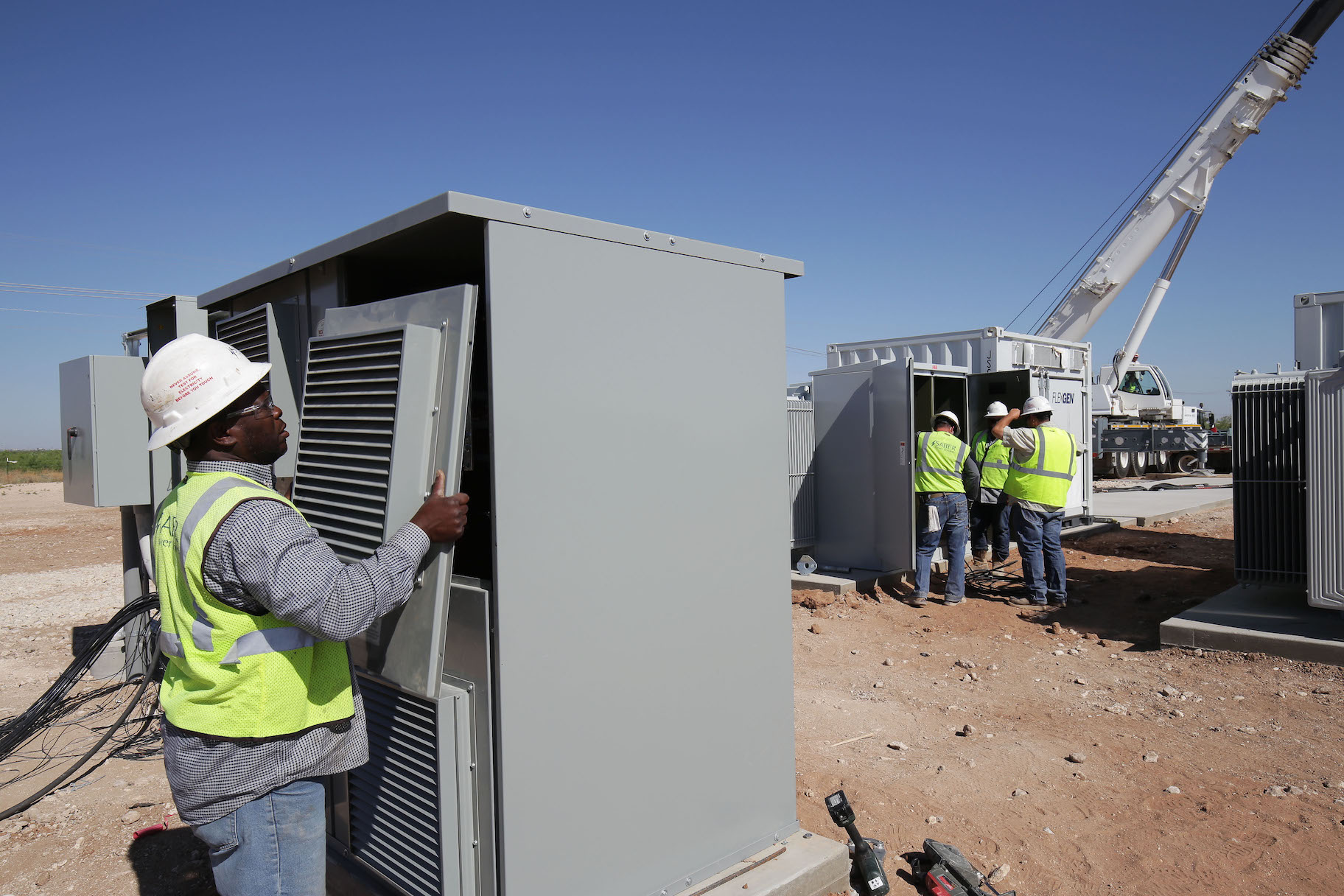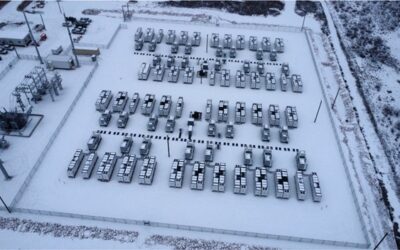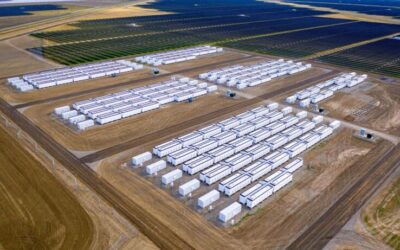
US-based independent power producer (IPP) Broad Reach Power has said it will build 15 projects in Texas in 2020, each of them just under 10MW / 10MWh, with construction on six of them set to begin this summer.
The remainder are expected to commence construction later in the year, with the sites near the cities of Houston and Odessa in the southern US state. In 2021, the company expects to construct two much larger Texas facilities of 100MW / 100MWh output and capacity each.
Steve Vavrik, managing partner and CEO with Broad Reach Power told Energy-Storage.news that the 15 systems to be built this year will provide reliability services to the Texas grid. Energy storage systems can mitigate the risk of price spikes and dips that are occurring, with generators, utilities and retail electric providers alike all “exposed to uncertainty in the supply-demand matching that occurs every minute on the power grid”.
“Our storage systems can offer ways to mitigate that risk through short- and long-term contracts, either physical or financial”.
Try Premium for just $1
- Full premium access for the first month at only $1
- Converts to an annual rate after 30 days unless cancelled
- Cancel anytime during the trial period
Premium Benefits
- Expert industry analysis and interviews
- Digital access to PV Tech Power journal
- Exclusive event discounts
Or get the full Premium subscription right away
Or continue reading this article for free
Vavrik said that each of the projects aiming for commissioning this year will be 9.95MW / 9.95MWh, because generation resources – as energy storage is currently classified in Texas – of under 10MW are “eligible for a streamlined interconnection process” in the Electricity Reliability Council of Texas (ERCOT) market. ERCOT manages electricity on the Texas Interconnection for 25 million customers, representing 90% of the electric load in Texas.
“We are eager to get these projects operating and chose this path,” Vavrik said, adding that: “One-hour duration systems were the best choice economically”.

A ‘Texas-scale’ opportunity
Texas is likely to be one of the US’ main areas of manufacturing growth and therefore manufacturing electrical load growth in the coming years, making it a key target for Broad Reach Power, a company that has only been in existence for around a year but already claims to have begun development or construction of close to US$100 million of energy storage assets.
Industrial and manufacturing entities need an electrical grid that is “cheap, clean and reliable,” Broad Reach’s Steve Vavrik said. The more all three of those factors can be improved, the more manufacturing and industry can potentially be supported to grow in Texas. Hence the enormous leap in size and capacity for 2021’s planned projects by the company.
“The need for reliability services in Texas is Texas-scale! While we chose the smaller sites for speed-to-market [this year], we are also developing the larger projects,” Vavrik told Energy-Storage.news, adding that the 100MW / 100MWh projects are expected to come online in summer 2021.
With battery system costs rapidly improving and system performance doing the same, CEO Steve Vavrik said that Broad Reach Power sees its developments this year and next as “the start of a virtuous cycle”.
“More storage allows more low-cost wind and solar to enter the grid, which will improve the emissions and lower the power costs overall. Then cheaper and better storage systems can be added, which will allow further additions of cheaper generation technology”.
As to how the battery systems will net revenues, Vavrik said that Texas grid and market operator ERCOT “acts as the central system operator, dispatching generators and other power grid equipment to instantaneously supply the load”.
“Most of our services will be sold to ERCOT, and then the load – utilities or retail electric providers – purchases their requirements from ERCOT at variable pricing. Sometimes, we then enter into bilateral financial swap contracts with the load to add certainty to the variable pricing. Wind and solar generators are also exposed to price risk due to their intermittent generation, and we can enter into swap agreements with them, also.”
Texas, famed around the world for its oil industry, has become host to a prolific renewables market, with more wind energy than any other US state and solar capacity also growing. The US’s federal Energy Information Administration (EIA) reported earlier this year that the state is also the leader for operating and planned renewables-plus-storage projects.
Danish power company Ørsted, for example, chose Andrews County in Texas as the site for its first large-scale solar-plus-storage project, announced late last year. In March 2020, Viridity Energy Solutions, a subsidiary of geothermal company Ormat Technologies brought 10MW battery energy storage system (BESS) project Rabbit Hill online to provide ancillary services and energy optimisation into ERCOT wholesale markets. A year earlier, independent power producer (IPP) GlidePath contracted Powin Energy to construct a one-hour 10MW lithium iron phosphate (LFP) BESS to deliver multiple services into the ERCOT market.





